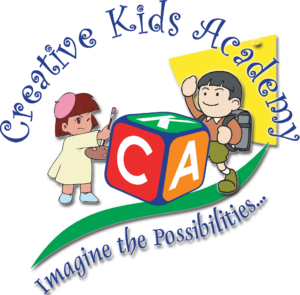Choosing quality childcare for your child can have a profound impact on their development and overall well-being. A good childcare facility provides social and emotional growth as well as cognitive and educational benefits. Some of the key ways your child can benefit from a high-quality childcare environment include:
- Socialization and Peer Interaction
One of the most significant advantages of quality childcare facilities is the opportunity for children to socialize and interact with their peers. They:
–Develop Social Skills. Children learn important social skills such as sharing, taking turns, and resolving conflicts. These skills are essential for successful social interactions throughout life.
–Develop Increased Independence: Being in a childcare setting allows children to develop a sense of independence and self-reliance. They learn to make choices, solve problems, and take responsibility for their actions.
–Have Exposure to Diversity: Quality childcare facilities often have a diverse group of children. This exposure helps children become more accepting and understanding of different cultures and backgrounds.
2. Cognitive and Educational Benefits
Quality childcare facilities are not just about babysitting; they provide an educational foundation that can set children up for success in school and beyond. Here are some of the cognitive and educational benefits:
– Early Learning Opportunities: Many childcare facilities offer structured educational programs that help children develop essential skills such as pre-reading, pre-math, and problem-solving.
– Language Development: Children in childcare environments have the opportunity to engage in conversations and activities that promote language development. This can lead to better communication and vocabulary skills.
– School Readiness: High-quality childcare facilities help prepare children for the transition to formal schooling. They introduce children to routines and structures that are similar to what they will encounter in kindergarten and beyond.
– Enhanced Cognitive Development: Through age-appropriate activities and educational toys, children’s cognitive development is stimulated. This can include improved memory, reasoning, and problem-solving skills.
3. Emotional and Behavioral Benefits
Children who attend quality childcare facilities often experience positive emotional and behavioral outcomes:
– Emotional Well-Being: Interaction with caring, trained professionals in a supportive environment can foster a child’s emotional well-being. Children can build secure attachments and develop a sense of trust.
–Reduced Separation Anxiety: Exposure to regular separations from parents or caregivers can help reduce separation anxiety, making transitions smoother when starting school.
– Emotional Resilience: Children in quality childcare learn to adapt to different situations and challenges, which can lead to greater emotional resilience.
– Better Behavior Management: Childcare providers are often skilled in managing children’s behavior, teaching discipline, and promoting positive behavior. This can help children learn to follow rules and respect authority figures.
Quality childcare facilities offer children more than just a safe place to stay while parents work or attend to other responsibilities. They provide an environment that supports social, emotional, and cognitive development. The benefits of quality childcare extend far beyond childhood, influencing a child’s readiness for school and laying the foundation for future success.
When choosing a childcare facility, consider factors such as licensing, staff qualifications, curriculum, and the overall atmosphere of the center. Investing in quality childcare can have a lasting positive impact on your child’s life, helping them develop the skills and qualities they need to thrive in school and beyond.
